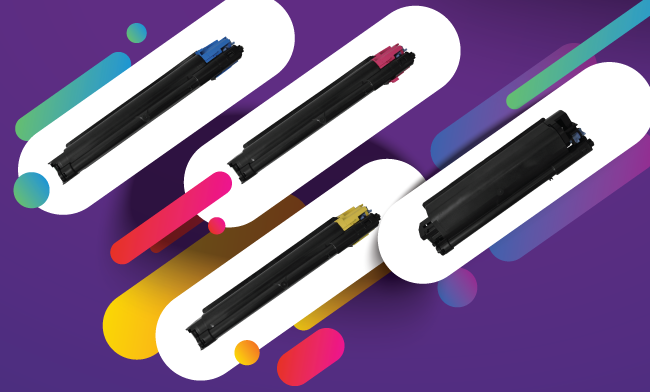Featured
Call for ‘proper’ disposal of printer cartridges
Each year, 375 million used printer cartridges are thrown away with most ending up in landfills or in incinerators. The global e-waste disposal market size is expected to reach $14,2-billion by 2025, from $9,68-billion in 2019. This mountain of waste can be reduced through recycling.
Recycling reduces air and water pollution and emissions associated with landfilling, incineration, or the manufacturing of new toner cartridges. It conserves natural resources like timber, water, oil, and minerals, because it reduces the need for raw materials, and it helps save energy. It also decreases emissions of greenhouse gases that contribute to global climate change and helps to sustain the environment for future generations.
To help in the battle against e-waste, Kyocera Document Solutions South Africa (KDZA), in partnership with recycler Carbon Footprint Recycling, is calling on businesses to act responsibly and accountably by disposing of empty toner cartridges and waste toner bottles in the proper manner.
“Consumption of toner is on the rise and the volume of waste is increasing,” says Paul Wendlandt, customer services support manager at KDZA. “How we treat toner waste today is important, both for corporate citizenship and the environment. We need to start changing our habits and finding useful things to do with this waste. That’s why we are encouraging businesses to participate in our recycle, reduce and reuse programme.”
Fergus Slattery, a director at Carbon Footprint Recycling, recites a quote from Robert Swan, who said: “The greatest threat to our planet is the belief that someone else will save it.”
“We can’t think that when we throw things away they are gone,” says Slattery. “They have to go somewhere, and I wanted to find a sustainable way of creating reuse of printer cartridges, because putting them into the dustbin is not an option. When we proposed a recycling concept to Kyocera, an exciting partnership was born.”
The recycling process is straightforward. Companies simply send a participation request to Kyocera and agree to the administration fee. They will then receive a recycling bin to collect all makes of used printer cartridges, along with a plastic liner. When the bin is full, the organisation requests a collection from Kyocera and the full waste bin liner is swapped for a new one.
The waste will be delivered to Carbon Footprint Recycling for processing. Nothing goes into landfill. The recycled cartridges are turned into concrete-based planter boxes, which will either be given to the participating organisations for their own use or will be given to communities where urban farmers can use them to grow vegetables.
“By participating in this initiative, not only are companies keeping things green, but also allowing for employment and community upliftment,” says Wendlandt. “As Kyocera’s philosophy reminds us, the highest calling for a person is to serve the greater good of humanity and the world.”
Companies that participate will benefit from hassle-free good corporate responsibility and citizenship, earn enterprise development points, and receive a recycling certificate every quarter, providing proof of participation which contributes to compliance with the Waste Act.
For more information, email collections@dza.kyocera.co.za, or call +27 (0)11 595 2711.
Share
- Click to share on Twitter (Opens in new window)
- Click to share on Facebook (Opens in new window)
- Click to share on LinkedIn (Opens in new window)
- Click to email a link to a friend (Opens in new window)
- Click to share on Reddit (Opens in new window)
- Click to share on WhatsApp (Opens in new window)
- Click to share on Pinterest (Opens in new window)
| Thank you for Signing Up |

















